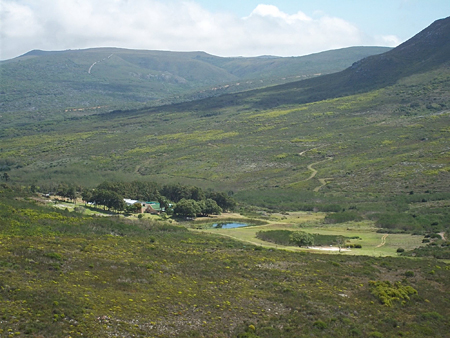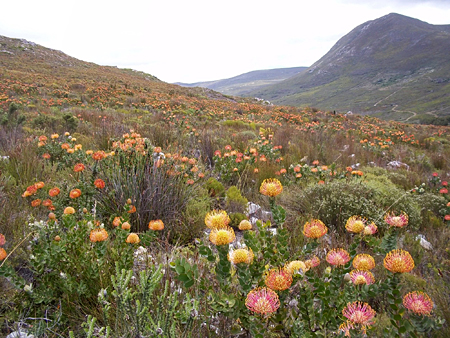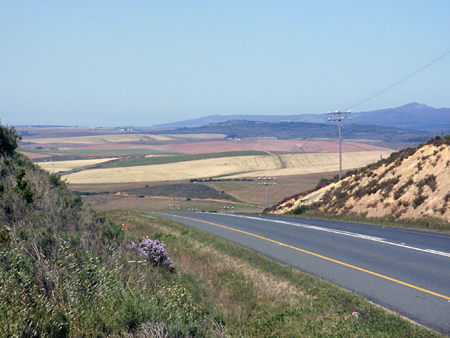The Flower Valley Farm and the Formation of the Conservation Trust

The Flower Valley Farm and the Formation of the Conservation Trust

amphitheatre are in the centre.
The story of sustainable wild flower harvesting started on the 580ha Flower Valley Farm, near Gansbaai on the western edge of the Agulhas Plain in the Western Cape. Until the late 1990s, the Flower Valley Farm was owned by a commercial farmer who sold locally gathered wild flowers to the Amsterdam flower market. However, there were concerns that a new owner would convert the iconic fynbos landscape into vineyards. Following an awareness-raising campaign, the United Kingdom (UK)-based conservation Non-Governmental Organisation (NGO) Fauna & Flora International (FFI) secured funds to purchase the farm in 1999 in order to protect the landscape and its inherent biodiversity. The Flower Valley Conservation Trust (FVCT) was set up locally to create a business that linked social investment with biodiversity conservation.

Some of these plants were burned when a planned burn spread out of control in March 2012.
There were concerns that unregulated wild harvesting of flowers was posing a serious threat to the ecosystem within the Cape Floristic Region, as plants were being over-harvested to the extent that some species were threatened or dying out altogether. In addition, inappropriate cutting techniques were thought to be shortening the lifespan of individual bushes and reducing their reproductive capacity. With backing from South African organisations such as the South African National Botanical Institute (SANBI) and multi-lateral agencies such as the Global Environment Facility (GEF), Flower Valley has been the testing ground for the development of a ‘sustainable harvesting code of practice’ (SHCoP), which amongst other things ensures that flower picking rates allow sufficient time for the ecosystem to successfully rejuvenate. In this sense, Flower Valley is a project of immense importance, since it seeks to achieve conservation through engagement with market opportunities – ‘building an economy based on biodiversity’. The existence of an ethical dimension, defined by the project’s conservation and community development components, has provided a unique selling point of interest to retailers keen to promote a reputation for sound ethical practices.

where land has been long been converted to arable production.
Further details on the sustainable harvesting toolkit can be found on The Flower Valley Conservation Trust website.